Sachin Tendulkar, Shane Warne bring cricket to U.S. with All-Star series
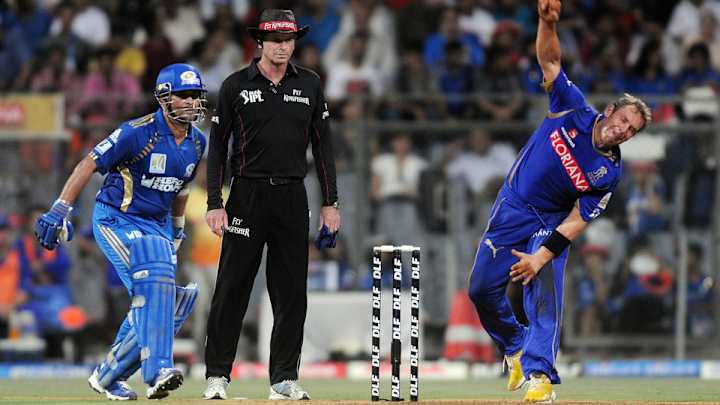
NEW YORK – Only a few nights after hosting the final three games of the World Series, Citi Field will again be the site of a stick-and-ball competition. This one, though, will involve overs, unders, wickets and spinners. Headlined by Sachin Tendulkar and Shane Warne—two of the sport’s titans—the Cricket All-Stars series comes to New York on Saturday afternoon, followed by dates in Houston and L.A.
While the tour will surely appeal to the Netherland crowd—that is: expats who connect to their home through cricket—it’s also a hell of a way to expose Americans to a sport with a television audience that routinely eclipses that of the Super Bowl. In town to prep for the Citi Field event, Tendulkar and Warne took time to visit with Sports Illustrated and patiently explain some of the sport’s finer points to a cricket novice.
Jon Wertheim: It’s not often we get cricket played in Major League Baseball Stadiums.
Shane Warne: Sachin and I spoke about this for a while and had an idea about wanting to get all the players together and we thought: What about America?
It's such a great place to play. Americans are passionate about their sports. We thought it was pretty iconic and a unique concept to get the best players over the last couple decades to have a drop-in pitch in baseball stadiums. The two of us got together and sort of formed this plan. We're really excited about it. I think people will like the concept, too.
JW:Do you see this as a way to grow cricket here in the U.S. or is the target audience a lot of the expats?
Sachin Tendulkar: I think the standard of playing is going to be something that people really enjoy. Twenty20 (t20) format is such that people get attracted to that no matter whether you're an ardent cricket follower or not, but it's gripping. Cricket was played [in the U.S.] but was not maybe appreciated as much because the names were missing. You have 29 world-class cricket players, superstars turning up.
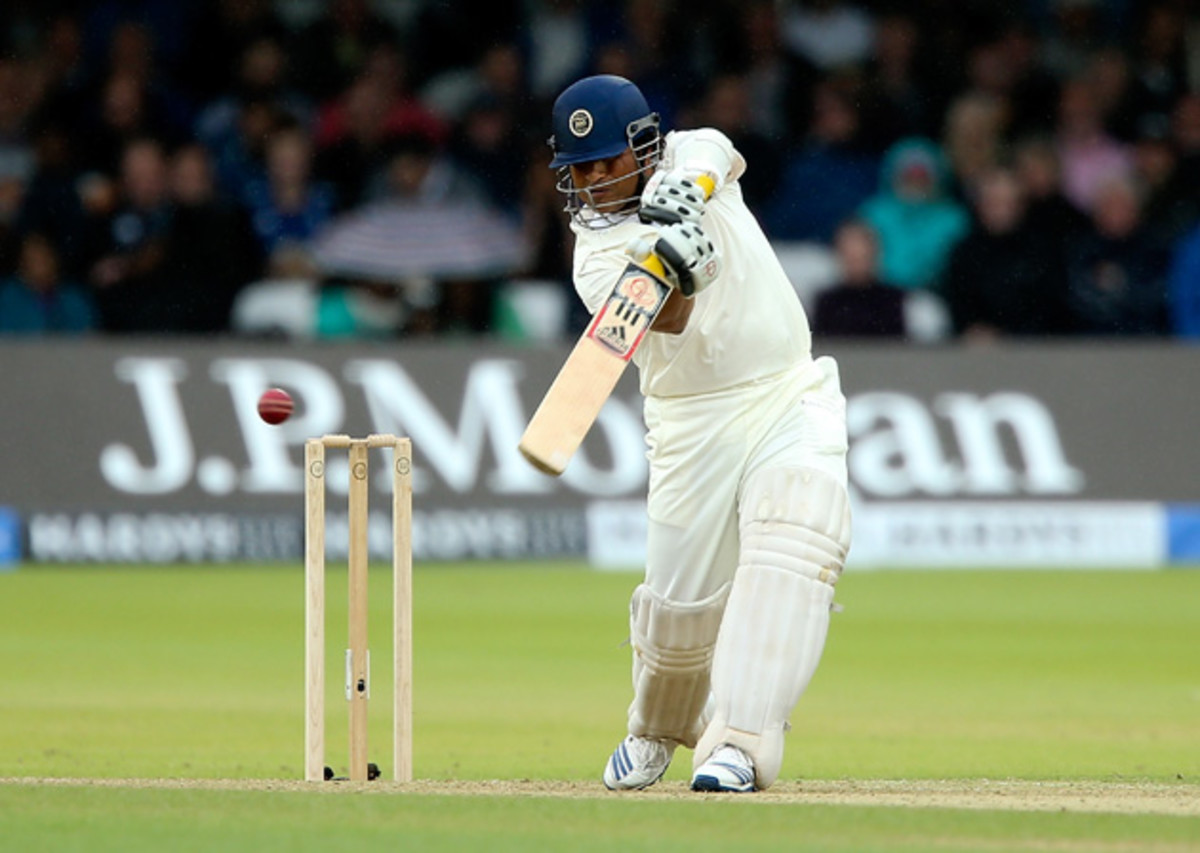
SW: The other thing is when David Beckham came to play, soccer here wasn't a very big sport. I'm not saying any of us are David Beckham. What I'm saying is when you get the big names, that attracts people, not just expats and cricket lovers. Everyone can see the spectacle. When you get the star power, people get attracted even out of curiosity just to go have a look.
JW: How do you feel about the baseball comparison, that Americans are so quick to make?
SW: I think they're different sports but there's still some similarities to them. For instance, some batters for baseball want to hit it out of the park; don't want to just bunt a ball and get up to first base. In cricket we drop the ball and want to get a single. There are some similarities, even though it's a completely different game. There's athleticism in the field. We don't have a glove. We've got bare hands.
JW: Have you tried to play baseball?
SW: I have. I have. I found it a bit hard to hit the ball. Sachin can probably hit it out of the park. I wasn't a very good hitter.
I did stuff with Bo Jackson with the baseball, showing him things I used to do. He was showing me some things with baseball. When I say strategy and similarities, what they do with baseball is curve ball, slider, fastball, different groups of things. Compared to what I did, which was a spinner….the batters, when I came to bowl, you knew exactly what I was going to bowl. The batters, when they stand there, I'm sure they watch the pitcher's hand to know what ball is coming. That's a similar strategy.
JW: You look at all sports. The NFL was in London last week. What are the global growth prospects for cricket?
ST: What we want to do is definitely globalize cricket. But last year when we played a match at Lord's on the 5th of July, post match when we were all together in the long room for cocktails, we realized that the passion for cricket is very much alive, even though we've retired. So the thought was: Why not use that energy, use it constructively?
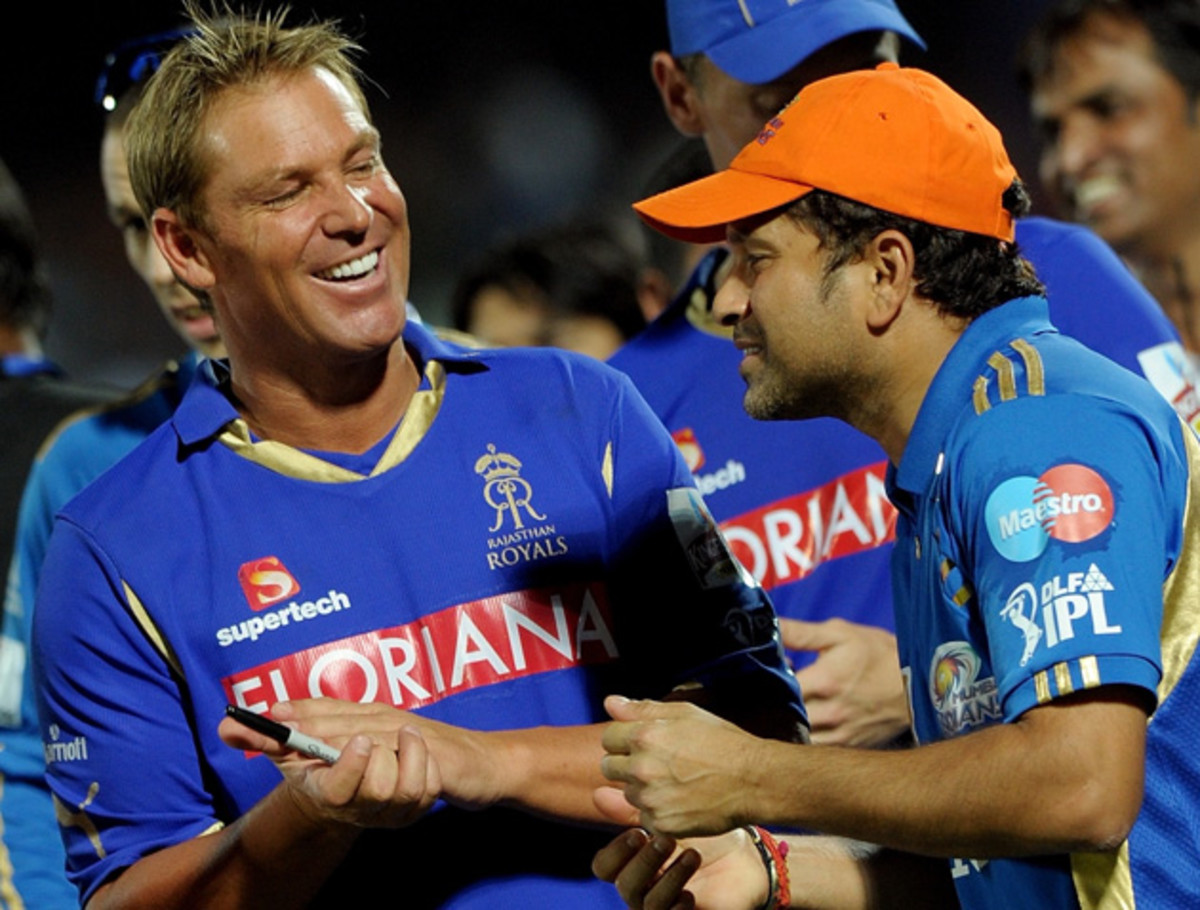
JW: What did you do to extend your career? How much of that was fitness, nutrition, studying video?
ST: For a batsman, I believed in watching my videos. In those days, video cassettes were there. I would get each and every inning of mine recorded by the producer and watch virtually each and every ball. Sit with my brother, my coach, see where I could get better.
Even if I had scored runs, what was the reason for me to do well? So, you know, it was just not about failures, it was also if I did well, what were the right things that I did?
I loved that process. I enjoyed watching myself. I was constantly working on my game. The whole idea was to continually keep getting better. That process was satisfying.
SW: I think when you first start, you don't want to embarrass yourself. You want to prove that you're good enough. Then once you sort of have, I suppose for me it was taking wickets at that level against the best on that stage, 1992 against the West Indies. I took 7 for 50 on the last day to help Australia win a test match. That proved to me that I was good enough for that level. Then once I proved I was good enough, then it was: How good can I be? Then there's a different range. You speak to different people. Fitness is one thing. I got super fit then, strength. Then you're working with science, speaking to experienced players. So it evolves. Your journey starts, you evolve, then suddenly you work everything out for yourself. Then it's just about: How good can I be? Then it's about pushing yourself, training harder, practicing your weaknesses, all the different things that go into being an elite athlete and playing at the highest level. That's science, nutrition, fitness.
But one of the biggest things that you never know about a player is the size of the heart. You can't go out there and train your heart and the way you think. That separates the great players from just the people that were good.
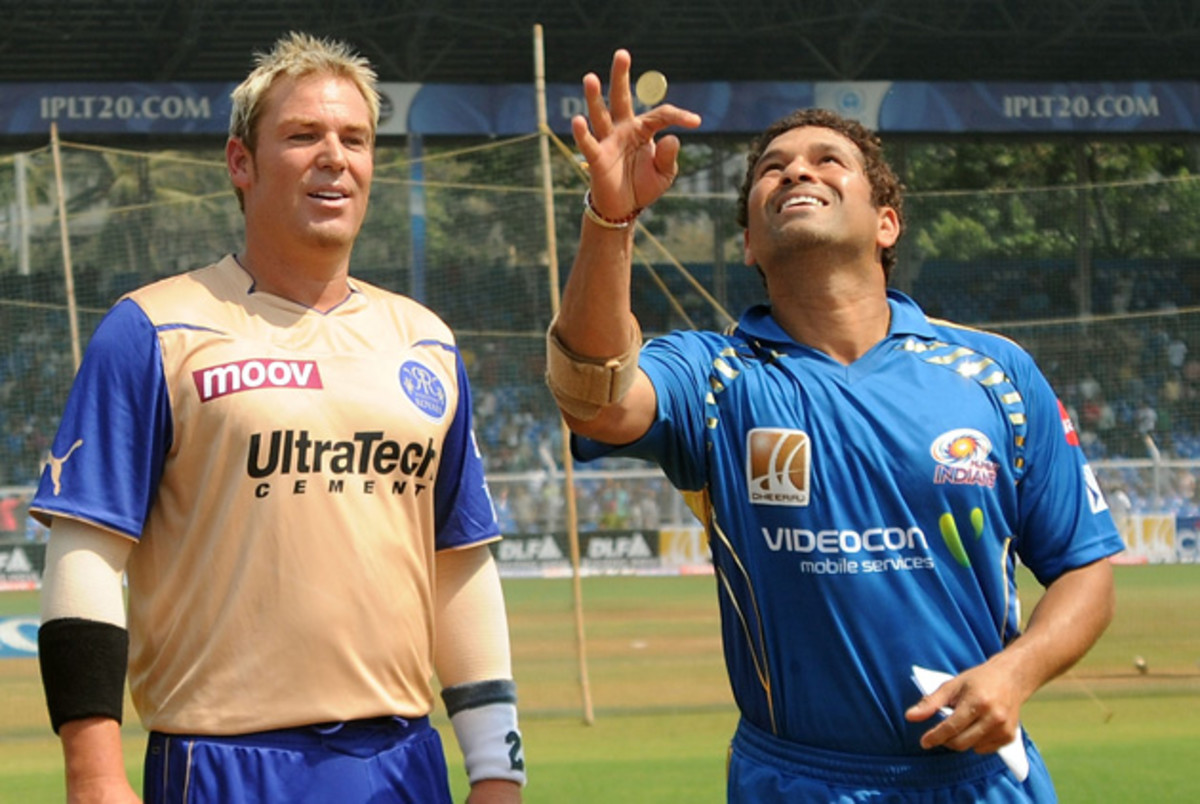
JW: Anyone with YouTube access can see that the hand-eye coordination is tremendous. But what are the mental components of cricket?
SW: I think clarity of mind. I think any sportsman in anything, if you don't have a clear mind about having a plan, a strategy and a clear mind, you won't do the job, and you won't do it consistently. You might have patches where you do well; but consistently over a long period of time, you know, there's a lot of things. Mainly it's the way you think. You have to be tough mentally. There's a lot of sacrifices, there's injuries. There's all sorts of things you have to overcome. Personal issues, whether it be something wrong with your children, and you have to go out there and play. There's a lot of things you have to be pretty strong mentally for.
ST: Yeah, I mean, I completely agree with him. I find the champions always look at solutions and not at problems. They always believe that they can work on any obstacle. Nothing is impossible. So I feel that has obviously to do with your heart and the way you approach cricket.
We were brought up to be aggressive. I mean, even if you look at Warne's bowling, whatever the scoreboard might be, whether he was having a good day or a bad day, looking at his body language, one wouldn't know whether he was having a good day or a bad day, because it stayed at one level. That level was pretty high for any ordinary player to get to. Results did not matter.
JW: How much of that was your constitution, your makeup; and how much of the mental side of the sport was something that you worked on as your career progressed?
ST: I was always aggressive by nature once I crossed the rope. Once I was on the other side of the rope, I was always very calm and quiet.
But once I crossed the rope, it just gave me a different high. I wanted to attack the ball as much as possible. The way I thought towards the athletes at the start of my career, the first option was to attack the ball if it was good, then where could I score some runs. If the ball was better than that, could I block it and pick a run. If it was the best ball the bowler has bowled, then let it go.
There are many players you would find they would initially look to survive, then they would look to attack. For me, my mindset was different.
I was brought up that way because the kind of surfaces that we played, they were turning tracks, not placid wickets as such, not well-maintained wickets.
Every day my coach would meet me on that wicket, practice and a match. The wickets were not in top conditions, so that adaptability was really important. And it was about scoring runs, not surviving, because you knew you would not survive for long.
If you started putting pressure on bowlers, then things changed dramatically. That's why my approach was a bit more aggressive.
SW: One of the reasons why Sachin was the best, it was obviously that he had better skill than everybody. He judged the length of the ball better, he was aggressive, all those things. But the way he handles it is something that I've always been impressed with. Sachin and I have been friends for a long time.
The one thing that has always impressed me about Sachin was the expectations that he was under. A billion people in India, every time he walked out to bat, the expectation, to actually handle that the way he did on the field, off the field, with pure class, as well as being the most successful batsman of our time.
He's amazing. It shows you how strong Sachin was mentally. And also people emulated, wanted to be like Sachin all the time. I think just that pressure he was under, the way he's handled it, has been fantastic.
And playing against him was really tough. It was really tough. There's some players, some really good players, that they would sometimes not give you the wicket on purpose, but you could fluff them out a bit. With Sachin you had to bowl something special to get him out. There was never an easy wicket with Sachin.
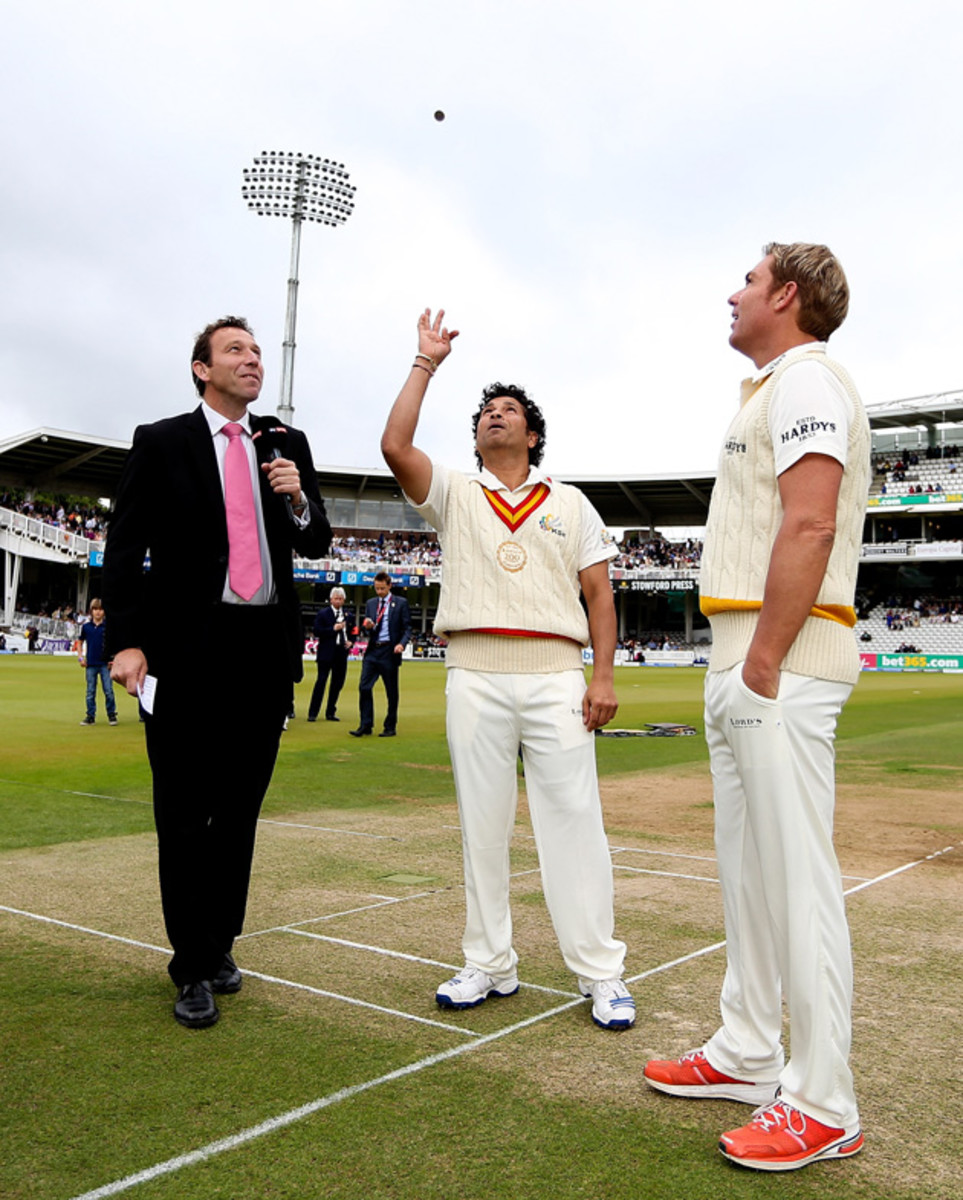
JW: I did want to ask you about fame. I saw Sachin at Wimbledon a few years ago. It was a global story that he was there. Can you walk around New York and have some privacy and anonymity?
ST: Absolutely.
JW: So what is that like?
ST: There are spots where we don't get disturbed. It's a luxury. I enjoy that. I enjoy doing those things, walking out on streets, go to any restaurant that I want to go, not worry about who's saying what, not worrying about keeping your fans happy. I don't like to disappoint them. I don't like to reject if somebody asks a photograph or autograph.
I try and make them happy, as much as I can. I respect any kind of following, good wishes. That's something which I believe has allowed me and given me strength to go out and play for such a long time. So I enjoy this freedom.
JW: You’re both recently retired. You have this extraordinary one in a billion skill and now time for the second half of my life. What is going to define success for you now?
SW: It's exciting. I think the hardest thing to do is replicate that competitiveness. That's the hardest thing to find, something that replaces 20 odd years of playing competitively. You can play golf, you can do all that. I love all that.
There's one sport, I found poker. I play poker with my wife. But playing, for instance, in the World Series of Poker in Las Vegas for eight, nine years every year. To sit there with seven thousand people. You're sitting there, there's strategy you have to work out. He's just here for a weekend for a good time. He's a professional player. He thinks he can play. He's his mate. You got to sit there and work out. Then you got position, you got pot odds, work out all that sort of stuff, too.
Poker is a very, very competitive game. It's got strategy as well. So I have found something that's similar to playing international cricket for your country. It's really good. My bowling was strategy and tactics, trying to out think people. I like using my brain. That's what poker is.
I'm lucky I found that. But it's very, very hard walking in front of 100,000 people and entertaining them. They all want to come and see you play. It's very hard to replicate that.
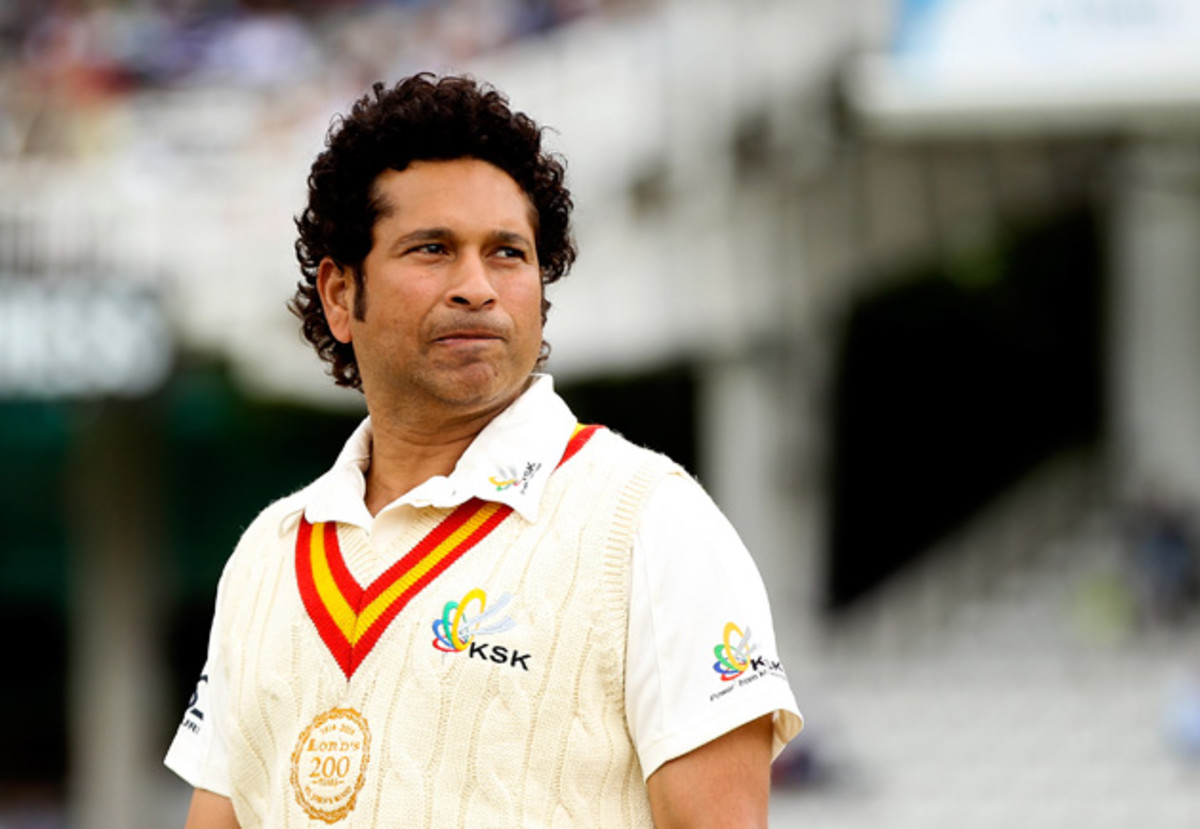
ST: I've not gotten into any professional sport or anything. But just for my own satisfaction, I play a lot of racquet sport.
JW: If you were an American sports fan—you're intrigued, but you're not necessarily a cricket super fan—if you're going to go out and watch, what are some things to pick up on?
SW: Well, one, the skill that will be on display. There will be athleticism in the field. Skill with batting and bowling. How far these guys, some of these batsmen, can hit the ball out of the park. Then how some of us can hopefully deceive hopefully a few of them, too.
I think the common thread is come and be entertained. Sachin touched on it earlier. Even for non-cricket lovers, you come to a t20 game, the atmosphere, environment, it's just pure entertainment. There's so much skill and athleticism on display, you'll be hooked once you come, because it's actually a great, fun game to watch. It's entertainment.
ST: It's exactly that. Most of the t20 games are a real tight, close finish. It gets exciting. It gets exciting. It doesn't slow down.
[In t20], 20 alls is 120 deliveries. So each bowler would go out and bowl six deliveries, one set, which is 1-All. As the time goes by, it gets faster and faster. Every ball becomes crucial, what the batter does or what the bowler does. …My friends actually came here in the '90s. They had no idea about basketball or baseball. Their American friends took them to stadiums and made them learn about basketball and baseball. Maybe it's time for them to reciprocate.
